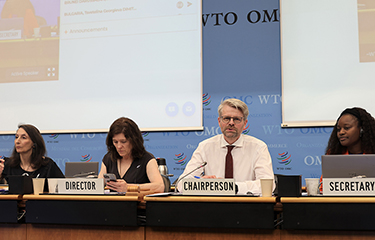World Trade Organization (WTO) negotiators have struggled to conclude talks on ending harmful fishery subsidies, and as each day goes by, the 31 December deadline to agree on a draft text – set by Icelandic WTO Ambassador Einar Gunnarsson, who has been chairing the talks – looms larger.
The ongoing talks aim to build upon a deal the WTO reached in 2022, which prohibited subsidy support for illegal, unreported, and unregulated (IUU) fishing, by adding rules on subsidies that lead to overfishing and overcapacity in global fishing fleets.
Gunnarsson circulated a draft text recently to negotiators that encompassed several proposals national delegations have compiled over recent months, including exemptions for which developing countries have called.
Several developing countries, including India, have stated that wealthier nations are largely to blame for the world’s overfishing by paying the largest amount of subsidies that support the practice. Among other requests, developing nations have said that countries with no distant-water fleet deserve a 25-year transition to the new subsidy rules, instead of the two years proposed in this latest round of talks.
The backbone of the complaints from countries like India is that a blanket ban on harmful fishery subsidies unfairly punishes nations that contribute very little to the problem of overfishing. They argue that many of the subsidies they dole out often concern keeping traditional fishing practices alive and that these types of subsidies could be swept up in a ban, while loopholes, such as government-to-government payments for fishing access, continue to allow overfishing to proliferate unabated.
The WTO has proposed solutions, including a more stringent reporting regime for top fishery subsidizers such as China, the E.U., and the U.S., to try to reach an agreement. However, developing nations are wary of a possible loophole that could allow industrialized countries to continue handing out certain subsidies – such as paying cash for access to third countries’ waters – while still adhering, on paper, to an agreed deal.
What could allow these industrialized nations to continue giving subsidies is that government-to-government payments under fisheries access agreements are exempted from the scope of the current WTO negotiations, according to Dyhia Belhabib, the co-director and founder of maritime defense technology startup Nautical Crime Investigation Services.
“The access agreement fees are government-to-government, so even if they provide the ability for operators to access third country waters, they still are not considered applicable for subsidy disciplines,” she said. “The E.U. is really good at finding loopholes, so here, the E.U. has a particular advantage in that it will not stop subsidizing its fleet, regardless of the status of stocks.”
To avoid the problems this loophole poses, Francois Mosnier, head of the oceans program at London, U.K.-based financial think tank Planet Tracker, suggests that once the WTO agreement from last year becomes enforced, terms of fishery access agreements should undergo renegotiation, “which should show that, in many cases, these are not economic for the fishing country.”
He also suggested significantly raising the cost of accessing fish resources in such deals “by including a monetary valuation of its impact on nature and local communities, with the money spent domestically.”
“This is the same principle as the idea behind taxing salmon farmers in Norway: paying the true price of accessing a natural resource,” Mosnier said.
About 26 percent of the world’s catch comes from vessels fishing in foreign waters, according to data from Sea Around Us, a research project started by the University of British Columbia that aims to provide accurate fisheries data. The project’s research also shows that 80 percent of that total stems from the fleets of 10 countries …
Photo courtesy of World Trade Organization








